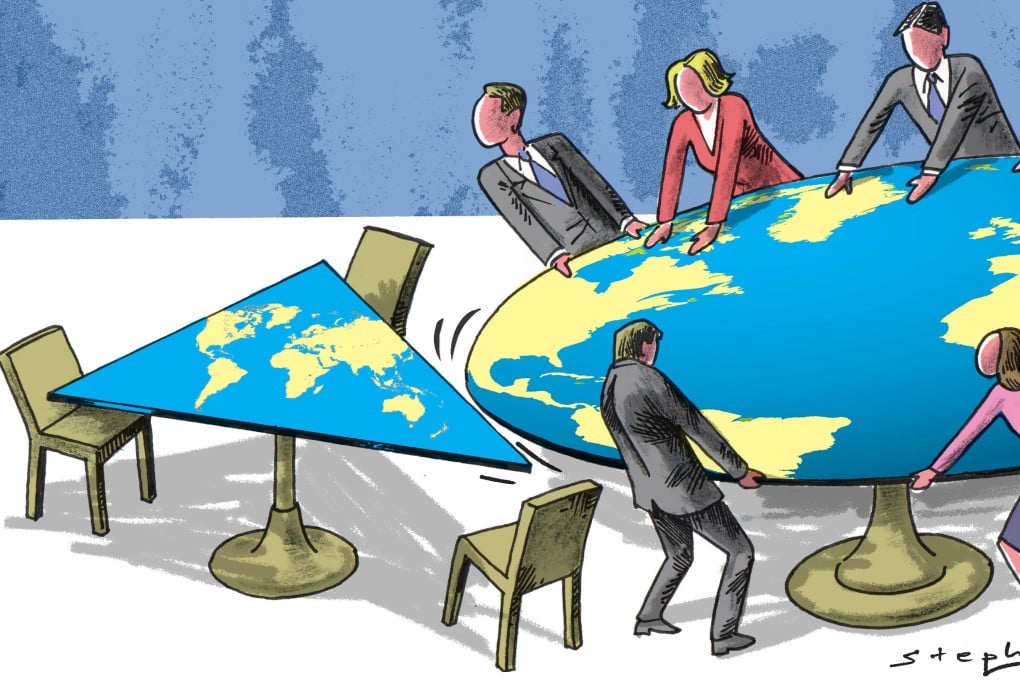Advertisement
Opinion | Alarm over a ‘China-Russia axis’ revives unwanted Cold War mentality
- Talk of a Sino-Russia-US ‘strategic triangle’ forces an outdated framework onto a changing, multipolar world and increases the risk of a great-power conflict
- Such rhetoric is made more dangerous given that the real struggle of the 21st century – climate change – must be fought collectively, not between rival powers
Reading Time:4 minutes
Why you can trust SCMP
24

Fifty years ago last week, President Nixon made a landmark visit to Beijing that thawed tensions with China and reshaped the geopolitics of the Cold War. After the Sino-Soviet split of the 1960s had effectively turned a bipolar world order into a “tripolarity”, Nixon’s trip and the rapprochement it symbolised substantially altered the balance of power in the triangle of China-Soviet-US relations.
The “strategic triangle” was the dominant frame through which geopolitics was understood at the height of the Cold War. It largely fell dormant with the fall of the USSR but has now been revived by some Western observers, with Putin’s Russia filling in for the Soviet Union.
This revival has been triggered by events in Ukraine and the joint statement between China and Russia on February 4, which was seen by some as a mirror moment of Nixon’s 1972 China visit – one that today brought Beijing and Moscow together against the US. It has generated a wave of headlines in the US warning of “The New Axis of Autocracy”, an “alliance of autocracies”, and a “New Superpower Struggle Among US, Russia, and China”.
But whatever the Cold War echoes in the current Ukraine crisis, applying this 20th-century triangular framing to our world today is a dangerous and misguided anachronism, for three major reasons.
First, it misreads China’s relations with Russia and intentions vis-à-vis the West. Ultimately, China wants to stabilise and improve ties with the US and its allies, not forge an anti-Western alliance with Russia.
The February 4 statement was a commitment to work together on shared interests, not the declaration of a joint anti-Western front that some have made it out to be. China has no alliance with Russia and has never supported a Russian invasion of Ukraine, as made clear again recently by Foreign Minister Wang Yi’s call to respect the sovereignty of any country and find a solution to the Ukraine crisis through dialogue and consultation.
Advertisement
